What is shoulder arthroscopy?
Shoulder arthroscopy is a minimally invasive procedure that allows your surgeon to look inside and treat problems within your shoulder joint using a small camera and fine surgical instruments. This technique, often called keyhole surgery, is commonly used to diagnose and treat a wide range of shoulder issues without the need for open surgery.
It involves small incisions, quicker recovery, and less post-operative pain compared to traditional techniques.
When is shoulder arthroscopy recommended?
You may be offered shoulder arthroscopy if you have:
- Persistent shoulder pain not improving with physiotherapy or injections
- Impingement syndrome (pinching of the rotator cuff tendons)
- Rotator cuff tears
- Labral tears or instability (e.g. dislocations)
- Frozen shoulder
- Cartilage damage or early arthritis
- Loose bodies or inflammation inside the joint
Arthroscopy can also be used to confirm a diagnosis when scans are unclear.
What does the surgery involve?
Shoulder arthroscopy is usually done under general anaesthetic, often combined with a nerve block to reduce pain after the operation. The procedure typically lasts 30 to 90 minutes.
During surgery:
- Several small (5–10mm) incisions are made around the shoulder
- A camera (arthroscope) is inserted to view the joint
- Fine instruments are used to repair damage, remove inflamed tissue, or smooth rough surfaces
Depending on the problem, procedures may include:
- Rotator cuff repair
- Subacromial decompression
- Labral repair
- Removal of loose fragments
- Synovectomy (removal of inflamed tissue)
You’ll usually go home the same day.
Recovery and rehabilitation
Recovery time depends on what was treated during the operation. You may need to wear a sling for a few days or weeks and begin physiotherapy shortly after surgery.
Typical recovery timeline:
- Light activity or desk work: 1 to 2 weeks
- Driving: 2 to 4 weeks
- Sports or physical work: 2 to 4 months
Your surgeon and physiotherapist will give you specific instructions to guide your recovery.
Risks and complications
Shoulder arthroscopy is generally low-risk, but all operations carry some potential complications:
- Infection
- Bleeding or bruising
- Stiffness or frozen shoulder
- Nerve injury (rare)
- Ongoing pain or weakness
- Incomplete relief of symptoms
Your consultant will discuss the risks and benefits based on your individual case.
What are the benefits?
Because it’s a keyhole procedure, shoulder arthroscopy offers:
- Smaller scars
- Less pain after surgery
- Faster recovery
- More accurate diagnosis and treatment
- Shorter hospital stay (usually day surgery)
It can significantly improve shoulder comfort and function in the right patients.
Why choose Midlands Orthopaedic Clinic?
At Midlands Orthopaedic Clinic, our shoulder surgeons are experts in keyhole surgery and manage a wide range of conditions using the latest arthroscopic techniques. We offer fast access to consultation, diagnostics, and treatment — all under one roof.
Our team will guide you from diagnosis through to recovery, ensuring you receive expert care every step of the way.
Get in touch
If you’ve been told you may need shoulder arthroscopy or are struggling with ongoing shoulder pain, we’re here to help.
Contact Midlands Orthopaedic Clinic today to book your consultation. Call us, or fill in our online enquiry form.




